Is Watching Gymnastics Ethical? Taking On The Cut's Loaded Question
Is Watching Gymnastics Ethical? Taking On The Cut's Loaded Question
People use comparisons to help bridge the gap between what we understand and what we might not. We compare cultures, people, political stances, fashion, and
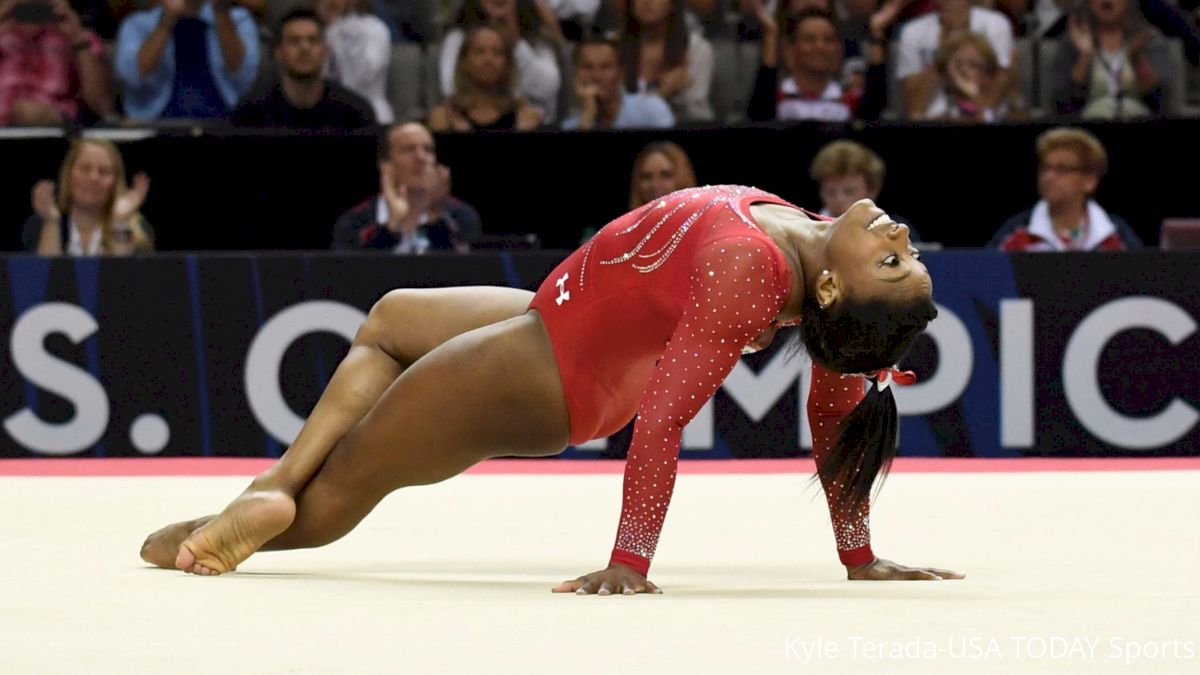
People use comparisons to help bridge the gap between what we understand and what we might not. We compare cultures, people, political stances, fashion, and, of course, sports.
This recent article by "The Cut," a site run by New York Magazine "for women who want to read provocative takes on issues that matter," questions the ethics of watching gymnastics. Incongruently, it poses the question: "Is watching gymnastics worse than being an NFL Fan?"
The author goes on to cite issues with the history of the "most dramatically feminine" sport. She wrote, "We know more about the complexities behind the spandex and scrunchies: the sport's history of sexual and emotional abuse, its amplifications of adolescent body-image problems, and its complicated coach-gymnast relationships."
No, gymnastics is not perfect, but neither is any other sport. In addition to peppering the article with unflattering and inappropriate photos and focusing on its most negative aspects, the initial question in the headline--"Is watching gymnastics worse than being an NFL fan?"--was never addressed.
I don't believe her opinion is reflective of the sport as a whole. My gymnastics experience spanned more than two decades. It began in a humble Wisconsin gym on a small cheese mat in 1995 and ended after four years at the University of Missouri in 2015. Now, as part of the FloGymnastics team, the sport continues to be a central aspect of my life.
My experience, along with the experiences of many others, was very different than the one portrayed in the article.
"The relentless pace of innovation (from the high-flying release moves on bars to the full twisting back flips on beam) has dramatically reshaped gymnastics, making it increasingly dangerous for and demanding on young bodies."
Of course gymnastics is difficult. If double backs were easy, this sport wouldn't be so amazing. The fact that it is so tough is what makes the performances awe-inspiring and what keeps so many athletes striving for more. Isn't toughness a triumph for women to celebrate and be marveled for?
The sport continues to evolve as skills increase and the competition improves. We wouldn't have seen a full twisting double layout on floor in the 50s, but in another 50 years, a full twisting double layout may seem just as quaint as the routines from the 50s do today.
The author said, "I found myself worried for tiny 19-year-old Madison Kocian," and noted that, "gymnastics is a sport that still takes an enormous toll on these adolescent bodies and minds--perhaps more than ever in this more physically ambitious era."
That brings us to the next point...
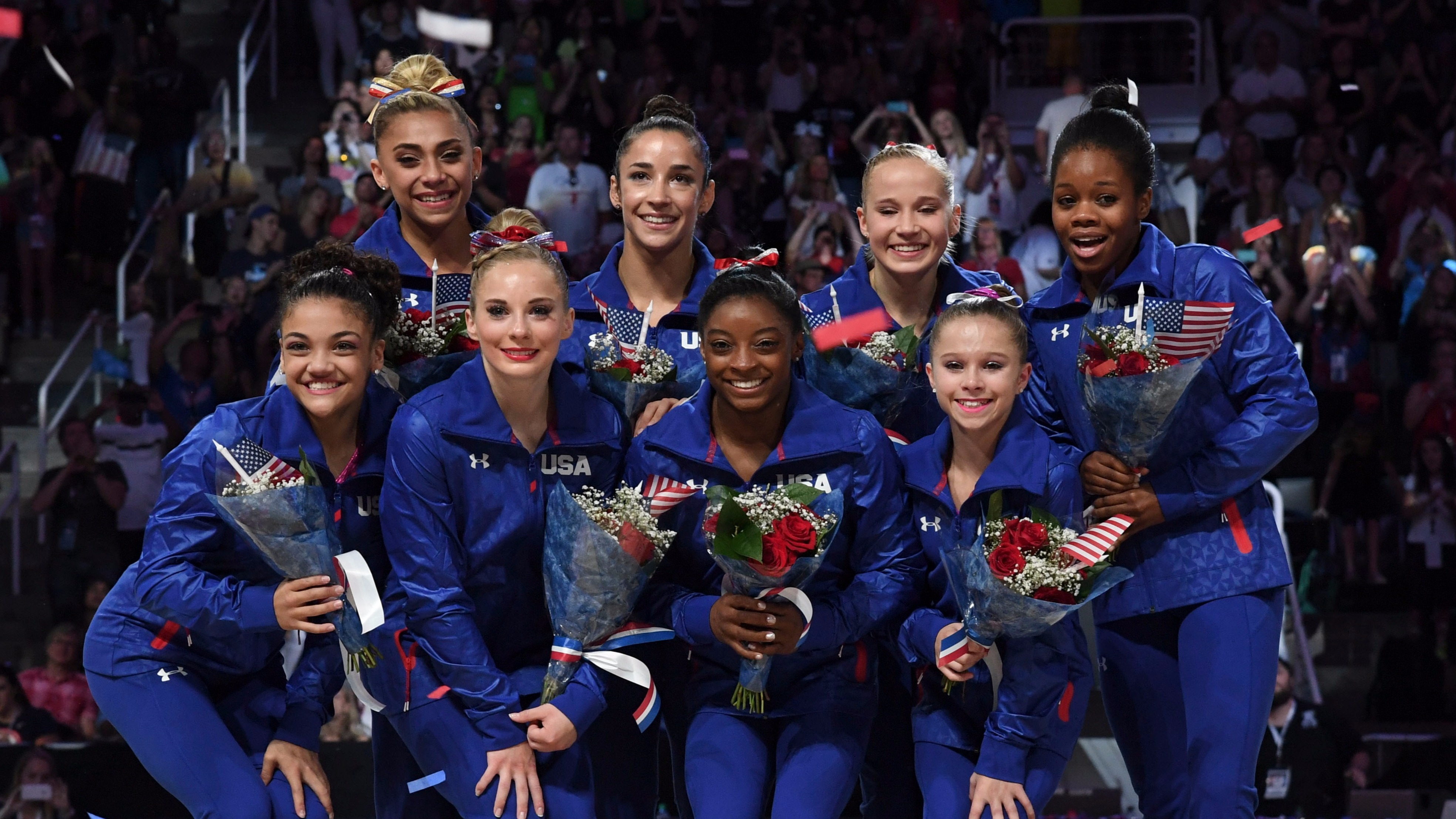
Kyle Terada-USA TODAY Sports
Once a sport known for being dominated by "16-year-old pipsqueaks," that is no longer the case. I surely did not fit this archaic mold. I performed my strongest, most confident gymnastics after turning 20. NCAA gymnastics was the final chapter of my career, but it was also my peak.
To be clear, there are notable differences between club, NCAA, and elite gymnastics. Each fulfill a different role for athletes with unique paths. But regardless of the path, age has become less and less of a limiting factor. And every other sport has opportunities to get involved early, as well--gymnastics is not unique in this regard.
The U.S. Olympic team is a great example of the current landscape: All strong, able bodies with different structures, ages, and strengths.
Aly Raisman is 22, Gabby Douglas is 20, Simone Biles and Madison Kocian are 19, and 16-year-old Laurie Hernandez is the outlier in terms of age. This trend of older gymnasts taking over the elite scene is not only the case in the U.S.--Rio medal contenders include Uzbekistan's 41-year-old Oksana Chusovitina, Romania's 28-year-old Catalina Ponor, Italy's 25-year-old Vanessa Ferrari, and Great Britain's 24-year-old Becky Downie.
We grow with time. We grow in our skills, we grow in our confidence, we grow out of our child-sized leotards and into our womanly bodies. We grow in our character and in our strength. And we learn how to fight back when our path is muddled with injuries.
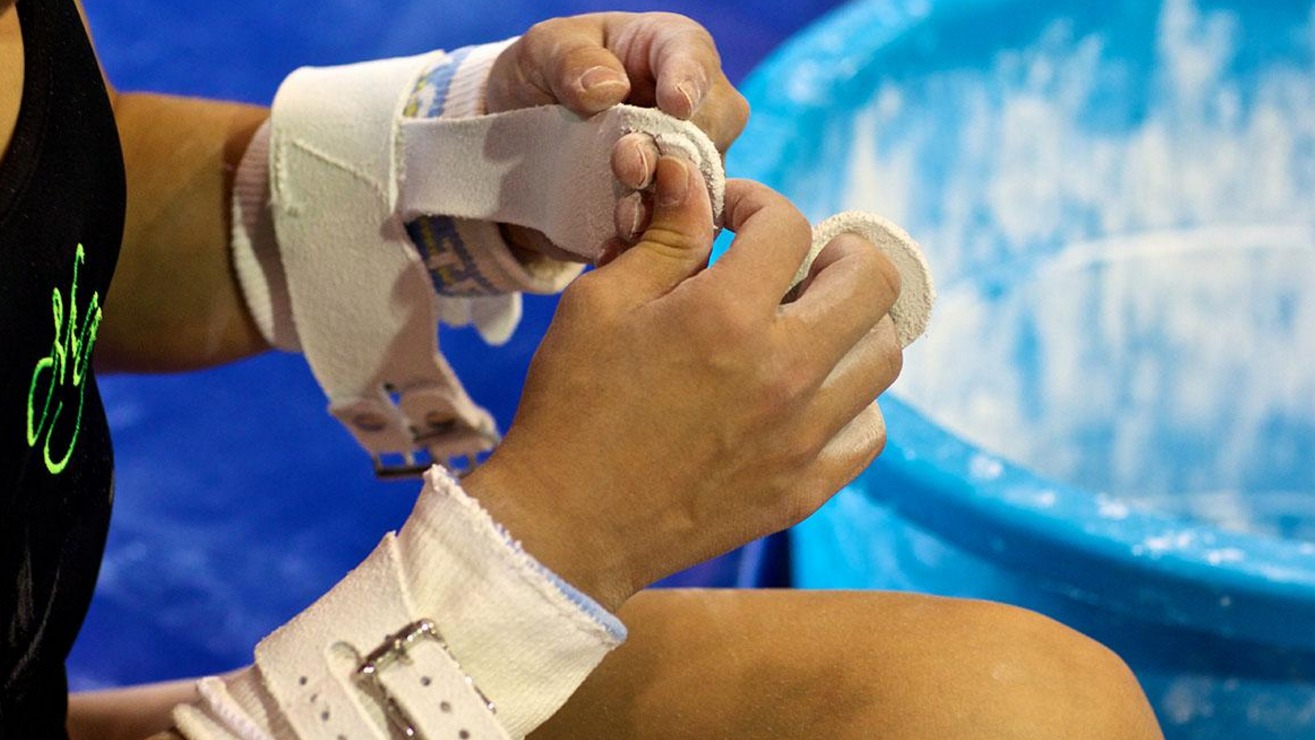
"Vulnerability and power go hand in hand in gymnastics, and the drive that pushes these athletes ever onward can easily turn into a form of masochism."
Gymnasts know pain. They know grit. This isn't just part of gymnastics, but part of sports as a whole. Gymnasts worldwide would attest to their hardest days being some of the most important to their personal growth.
I fell to my face on more Giengers than I can count, rolled my ankles, smacked my shins, straddled the beam, and lost a season to a torn PCL from a bad Yurchenko landing. I've cried over conditioning--running the stadium stairs had me questioning if I'd see another sunrise. The rigorous training required to become a high-level gymnast cannot be understated. This sport is the hardest in the world. But those tough days developed my self-efficacy more than anything.
This doesn't mean we should be pushing through pain when it's not safe. We are not masochists. We have goals and dreams and know it takes unbelievable amounts of hard work to achieve them. We trust the training plans provided by our coaches, and we know what is too much to handle.
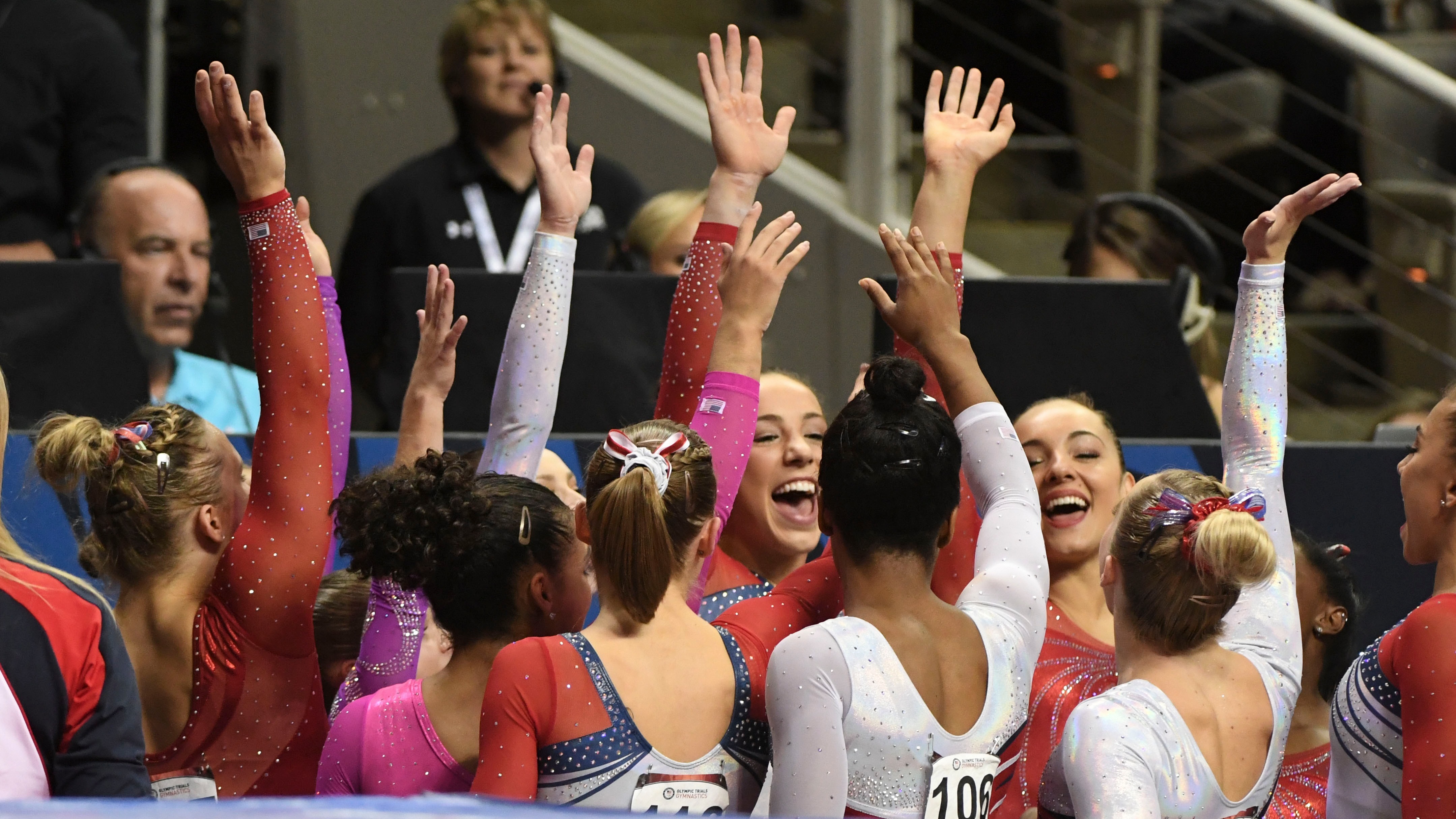
Kyle Terada-USA Today Sports
The article addresses the paradox between gymnastics' incredible athletic feats and its traditional femininity, noting "The startling incongruities between the gymnast's strength and her performance of girlishness -- her spangled leotard, her beribboned hairdo, her makeup."
To me, there's nothing wrong with being both supremely athletic and feminine at the same time. Gymnasts are performers, and when the spotlight goes on, it's time to shine. We are strong, dominant women who also love sparkles--so what?
Leotards covered in rhinestones, glitter-laden braids, and meet-day makeup never took away from the thousands of hours I'd spent fiercely training; the thousands of rips I'd acquired on my hands; or the thousands of times I had fallen on my face.
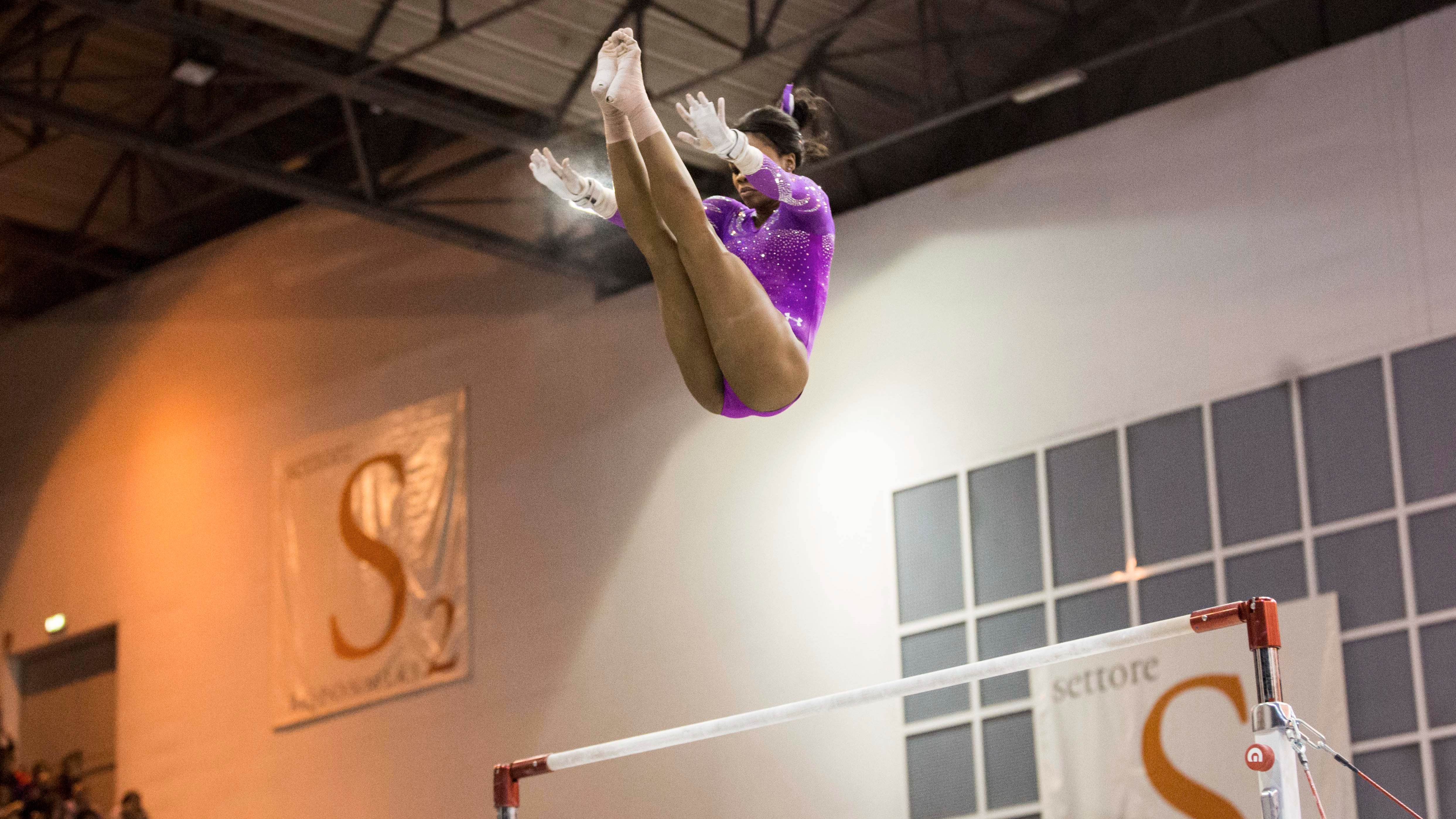
This is where we agree, but it seems contradictory. The author said she is drawn to gymnastics for its beauty--the same beauty she scorned.
"When Gabby Douglas manages extraordinary heights in her uneven-bars release moves, we feel viscerally the extraordinary power of not just the human body but the human will."
Those release moves are the ones she previously described as too dangerous and demanding.
I think it's possible to overanalyze every aspect of sport until it turns into a social and political controversy. As in any sport, there are issues in gymnastics, but there's also a community working to combat them and bring change. Many people have found enormous growth through this sport. It helps empower girls and women alike to realize their strength, and display it proudly to the world.
Gymnastics is complex, undeniably difficult, and sometimes messy. But for me, it will always and forever be a positive springboard that helped me become the person I am today.
I know many other women can say the same.
This recent article by "The Cut," a site run by New York Magazine "for women who want to read provocative takes on issues that matter," questions the ethics of watching gymnastics. Incongruently, it poses the question: "Is watching gymnastics worse than being an NFL Fan?"
The author goes on to cite issues with the history of the "most dramatically feminine" sport. She wrote, "We know more about the complexities behind the spandex and scrunchies: the sport's history of sexual and emotional abuse, its amplifications of adolescent body-image problems, and its complicated coach-gymnast relationships."
No, gymnastics is not perfect, but neither is any other sport. In addition to peppering the article with unflattering and inappropriate photos and focusing on its most negative aspects, the initial question in the headline--"Is watching gymnastics worse than being an NFL fan?"--was never addressed.
I don't believe her opinion is reflective of the sport as a whole. My gymnastics experience spanned more than two decades. It began in a humble Wisconsin gym on a small cheese mat in 1995 and ended after four years at the University of Missouri in 2015. Now, as part of the FloGymnastics team, the sport continues to be a central aspect of my life.
My experience, along with the experiences of many others, was very different than the one portrayed in the article.
Assertion 1: Gymnastics is too tough
"The relentless pace of innovation (from the high-flying release moves on bars to the full twisting back flips on beam) has dramatically reshaped gymnastics, making it increasingly dangerous for and demanding on young bodies."
Of course gymnastics is difficult. If double backs were easy, this sport wouldn't be so amazing. The fact that it is so tough is what makes the performances awe-inspiring and what keeps so many athletes striving for more. Isn't toughness a triumph for women to celebrate and be marveled for?
The sport continues to evolve as skills increase and the competition improves. We wouldn't have seen a full twisting double layout on floor in the 50s, but in another 50 years, a full twisting double layout may seem just as quaint as the routines from the 50s do today.
The author said, "I found myself worried for tiny 19-year-old Madison Kocian," and noted that, "gymnastics is a sport that still takes an enormous toll on these adolescent bodies and minds--perhaps more than ever in this more physically ambitious era."
That brings us to the next point...

Kyle Terada-USA TODAY Sports
Assertion 2: Gymnasts are too young to think for themselves
Once a sport known for being dominated by "16-year-old pipsqueaks," that is no longer the case. I surely did not fit this archaic mold. I performed my strongest, most confident gymnastics after turning 20. NCAA gymnastics was the final chapter of my career, but it was also my peak.
To be clear, there are notable differences between club, NCAA, and elite gymnastics. Each fulfill a different role for athletes with unique paths. But regardless of the path, age has become less and less of a limiting factor. And every other sport has opportunities to get involved early, as well--gymnastics is not unique in this regard.
The U.S. Olympic team is a great example of the current landscape: All strong, able bodies with different structures, ages, and strengths.
Aly Raisman is 22, Gabby Douglas is 20, Simone Biles and Madison Kocian are 19, and 16-year-old Laurie Hernandez is the outlier in terms of age. This trend of older gymnasts taking over the elite scene is not only the case in the U.S.--Rio medal contenders include Uzbekistan's 41-year-old Oksana Chusovitina, Romania's 28-year-old Catalina Ponor, Italy's 25-year-old Vanessa Ferrari, and Great Britain's 24-year-old Becky Downie.
We grow with time. We grow in our skills, we grow in our confidence, we grow out of our child-sized leotards and into our womanly bodies. We grow in our character and in our strength. And we learn how to fight back when our path is muddled with injuries.

Assertion 3: Gymnasts are masochists
"Vulnerability and power go hand in hand in gymnastics, and the drive that pushes these athletes ever onward can easily turn into a form of masochism."
Gymnasts know pain. They know grit. This isn't just part of gymnastics, but part of sports as a whole. Gymnasts worldwide would attest to their hardest days being some of the most important to their personal growth.
I fell to my face on more Giengers than I can count, rolled my ankles, smacked my shins, straddled the beam, and lost a season to a torn PCL from a bad Yurchenko landing. I've cried over conditioning--running the stadium stairs had me questioning if I'd see another sunrise. The rigorous training required to become a high-level gymnast cannot be understated. This sport is the hardest in the world. But those tough days developed my self-efficacy more than anything.
This doesn't mean we should be pushing through pain when it's not safe. We are not masochists. We have goals and dreams and know it takes unbelievable amounts of hard work to achieve them. We trust the training plans provided by our coaches, and we know what is too much to handle.

Kyle Terada-USA Today Sports
Assertion 4: Gymnastics is too feminine
The article addresses the paradox between gymnastics' incredible athletic feats and its traditional femininity, noting "The startling incongruities between the gymnast's strength and her performance of girlishness -- her spangled leotard, her beribboned hairdo, her makeup."
To me, there's nothing wrong with being both supremely athletic and feminine at the same time. Gymnasts are performers, and when the spotlight goes on, it's time to shine. We are strong, dominant women who also love sparkles--so what?
Leotards covered in rhinestones, glitter-laden braids, and meet-day makeup never took away from the thousands of hours I'd spent fiercely training; the thousands of rips I'd acquired on my hands; or the thousands of times I had fallen on my face.

Gymnastics is beautiful
This is where we agree, but it seems contradictory. The author said she is drawn to gymnastics for its beauty--the same beauty she scorned.
"When Gabby Douglas manages extraordinary heights in her uneven-bars release moves, we feel viscerally the extraordinary power of not just the human body but the human will."
Those release moves are the ones she previously described as too dangerous and demanding.
I think it's possible to overanalyze every aspect of sport until it turns into a social and political controversy. As in any sport, there are issues in gymnastics, but there's also a community working to combat them and bring change. Many people have found enormous growth through this sport. It helps empower girls and women alike to realize their strength, and display it proudly to the world.
Gymnastics is complex, undeniably difficult, and sometimes messy. But for me, it will always and forever be a positive springboard that helped me become the person I am today.
I know many other women can say the same.
Related Content
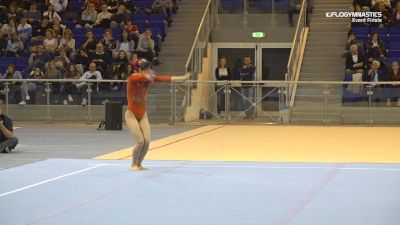 Replay: Ayumi Niiyama - Floor, Japan - 2019 City of Jesolo Trophy
Replay: Ayumi Niiyama - Floor, Japan - 2019 City of Jesolo TrophyJun 26, 2023
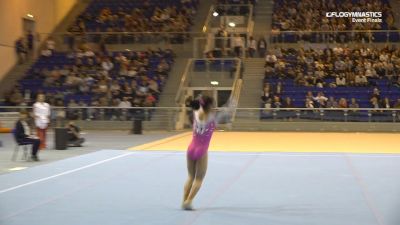 Replay: Zhang Jin - Floor, China - 2019 City of Jesolo Trophy
Replay: Zhang Jin - Floor, China - 2019 City of Jesolo TrophyJun 26, 2023
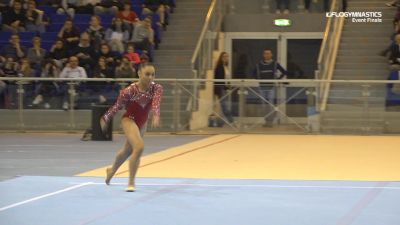 Replay: Emma Malabuyo - Floor, USA - 2019 City of Jesolo Trophy
Replay: Emma Malabuyo - Floor, USA - 2019 City of Jesolo TrophyJun 26, 2023
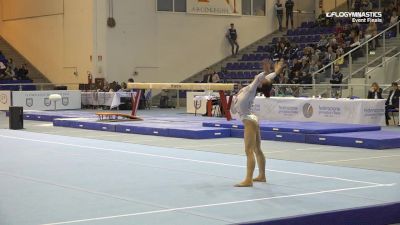 Replay: Qi Qi - Floor, China - 2019 City of Jesolo Trophy
Replay: Qi Qi - Floor, China - 2019 City of Jesolo TrophyJun 26, 2023
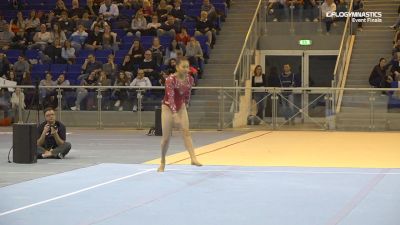 Replay: Sunisa Lee - Floor, USA - 2019 City of Jesolo Trophy
Replay: Sunisa Lee - Floor, USA - 2019 City of Jesolo TrophyJun 26, 2023
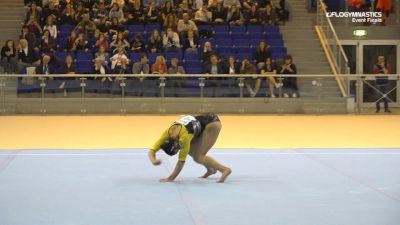 Replay: Desiree Carofiglio - Floor, Italy - 2019 City of Jesolo Trophy
Replay: Desiree Carofiglio - Floor, Italy - 2019 City of Jesolo TrophyJun 26, 2023
 Replay: Lander vs Mars Hill | Mar 28 @ 6 PM
Replay: Lander vs Mars Hill | Mar 28 @ 6 PMMar 29, 2024
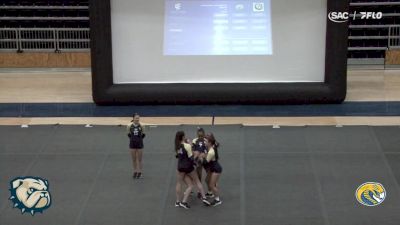 Replay: Coker vs Wingate | Mar 21 @ 6 PM
Replay: Coker vs Wingate | Mar 21 @ 6 PMMar 22, 2024
 Replay: Wingate Tri-Meet - Acrobatics & Tumbling | Mar 15 @ 5 PM
Replay: Wingate Tri-Meet - Acrobatics & Tumbling | Mar 15 @ 5 PMMar 15, 2024